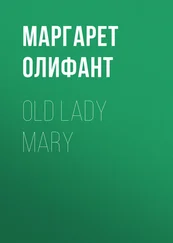Маргарет Олифант - Brownlows
Здесь есть возможность читать онлайн «Маргарет Олифант - Brownlows» — ознакомительный отрывок электронной книги совершенно бесплатно, а после прочтения отрывка купить полную версию. В некоторых случаях можно слушать аудио, скачать через торрент в формате fb2 и присутствует краткое содержание. Жанр: foreign_prose, literature_19, foreign_antique, на английском языке. Описание произведения, (предисловие) а так же отзывы посетителей доступны на портале библиотеки ЛибКат.
- Название:Brownlows
- Автор:
- Жанр:
- Год:неизвестен
- ISBN:нет данных
- Рейтинг книги:5 / 5. Голосов: 1
-
Избранное:Добавить в избранное
- Отзывы:
-
Ваша оценка:
- 100
- 1
- 2
- 3
- 4
- 5
Brownlows: краткое содержание, описание и аннотация
Предлагаем к чтению аннотацию, описание, краткое содержание или предисловие (зависит от того, что написал сам автор книги «Brownlows»). Если вы не нашли необходимую информацию о книге — напишите в комментариях, мы постараемся отыскать её.
Brownlows — читать онлайн ознакомительный отрывок
Ниже представлен текст книги, разбитый по страницам. Система сохранения места последней прочитанной страницы, позволяет с удобством читать онлайн бесплатно книгу «Brownlows», без необходимости каждый раз заново искать на чём Вы остановились. Поставьте закладку, и сможете в любой момент перейти на страницу, на которой закончили чтение.
Интервал:
Закладка:
“But you are strangers in Masterton,” said Mr. Brownlow, attracted by his frank looks. “Had you any special inducement to come here?”
“Nothing of any importance,” said the youth, and he colored a little. “The fact is, sir, my mother came of richer people than we are now, and they cast her off; and some of them once lived in Masterton. She came to see if she could hear any thing of her friends.”
“And did she?” said John Brownlow, feeling his breath come a little quick.
“They are all dead long ago,” said the young man. “We have all been born in Canada, and we never heard what had happened. Her moth—I mean her friends, are all dead, I suppose; and Masterton is just as good as any other place to make a beginning in. I should not be afraid if I could get any thing to do.”
“Clerk’s salaries are very small,” said Mr. Brownlow, without knowing what it was he said.
“Yes, but they improve,” said his visitor, cheerfully; “and I don’t mind what I do. I could make up books or do any thing at night, or even have pupils—I have done that before. But I beg your pardon for troubling you with all this. If the place is filled up—”
“Nay, stop—sit down—you interest me,” said Mr. Brownlow. “I like a young fellow who is not easily cast down. Your mother—belongs—to Masterton, I suppose,” he added, with a little hesitation; he, that gave way to no man in Dartfordshire for courage and coolness, he was afraid. He confessed it to himself, and felt all the shame of the new sensation, but it had possession of him all the same.
“She belongs to the Isle of Man,” said the young man, with his frank straightforward look and the smile in his eyes. He answered quite simply and point-blank, having no thought that there was any second meaning in his words; but it was otherwise with him who heard. John Brownlow sat silent, utterly confounded. He stared at the young stranger in a blank way, not knowing how to answer or how to conceal or account for the tremendous impression which these simple words made on him. He sat and stared, and his lower lip fell a little, and his eyes grew fixed, so that the youth was terrified, and did not know what to make of it. Of course he seized upon the usual resource of the disconcerted—“I beg your pardon,” he said, “but I am afraid you are ill.”
“No, no; it is nothing,” said Mr. Brownlow. “I knew some people once who came from the Isle of Man. But that is a long time ago. I am sorry she has not found the people she sought for. But, as you say, there is nothing like work. If you can engross well—though how you should know how to engross after taking pupils and keeping books—”
“We have to do a great many things in the colony,” said his young visitor. “If a man wants to live, he must not be particular about what he does. I was two years in a lawyer’s office in Paris—”
“In Paris?” said Mr. Brownlow, with amazement.
“I mean in Paris, Canada West,” said the youth, with a touch of momentary defiance, as who would say, “and a very much better Paris than any you can boast of here.”
This little accident did so much good that it enabled Mr. Brownlow to smile, and to shake off the oppression that weighed upon him. It was a relief to be able to question the applicant as to his capabilities, while secretly and rapidly in his own mind he turned over the matter, and asked himself what he should do. Discourage the young man and direct him elsewhere, and gently push him out of Masterton—or take him in and be kind to him, and trust in Providence? The panic of the moment suggested the first course, but a better impulse followed. In the first place, it was not easy to discourage a young fellow with those sanguine brown eyes, and blood that ran so quickly in his veins; and if any danger was at hand, it was best to have it near, and be able to study it, and be warned at once how and when it might approach. All this passed rapidly, like an under-current, through John Brownlow’s mind, as he sat and asked innumerable questions about the young applicant’s capabilities and antecedents. He did it to gain time, though all young Powys thought was that he had never gone through so severe an examination. The young fellow smiled within himself at the wonderful precision and caution of the old man, with a kind of transatlantic freedom—not that he was republican, but only colonial; not irritated by his employer’s superiority, but regarding it as an affair of perhaps only a few days or years.
“I will think it over,” said Mr. Brownlow at last. “I can not decide upon any thing all at once. If you settle quietly down and get a situation, I think you may do very well here. It is not a dear place, and if your mother has friends—”
“But she has no friends now that we know of,” said the young man, with the unnecessary and persistent explanatoriness of youth.
“If she has friends here,” persisted Mr. Brownlow, “you may be sure they will turn up. Come back to me to-morrow. I will think it all over in the mean time, and give you my answer then. Powys—that is a very good name—there was a Lady Powys here some time ago, who was exceedingly good and kind to the poor. Perhaps it was she whom you sought—”
“Oh, no,” said the young man, eagerly; “it was my mother’s people—a family called—”
“I am afraid I have an engagement now,” said Mr. Brownlow; and then young Powys withdrew, with that quiet sense of shame and compunction which belongs only to his years. He, of course, as was natural, could see nothing of the tragic under-current. It appeared to him only that he was intruding his private affairs, in an unjustifiable way, on his probable patron—on the man who had been kind to him, and given him hope. “What an ass I am!” he said to himself as he went away, “as if he could take any interest in my mother’s friends.” And it troubled the youth all day to think that he had possibly wearied Mr. Brownlow by his explanations and iteration—an idea as mistaken as it was possible to conceive.
When he had left the office, the lawyer fell back in his chair, and for a long time neither moved nor spoke. Probably it was the nature of his previous reflections which gave this strange visit so overwhelming an effect. He sat in a kind of stupor, seeing before him, as it appeared in actual bodily presence, the danger which it had startled him this same morning to realize as merely possible. If it had been any other day, he might have heard, without much remarking, all those singular coincidences which now appeared so startling; but they chimed in so naturally, or rather so unnaturally, with the tenor of his thoughts, that his panic was superstitious and overwhelming. He sat a long time without moving, almost without breathing, feeling as if it was some kind of fate that approached him. After so many years that he had not thought of this danger, it seemed to him at last that the thoughts which had entered his mind in the morning must have been premonitions sent by Providence; and at a glance he went over the whole position—the new claimant, the gradually expanding claim, the conflict over it, the money he had locked up in that one doubtful speculation, the sudden diminution of his resources, perhaps the necessity of selling Brownlows and bringing Sara back to the old house in the High Street where she was born. Such a downfall would have been nothing for himself: for him the old wainscot dining-parlor and all the well-known rooms were agreeable and full of pleasant associations; but Sara—Then John Brownlow gave another wide glance over his social firmament, asking himself if there was any one whom, between this time and that, Sara’s heart might perhaps incline to, whom she might marry, and solve the difficulty. A few days before he used to dread and avoid the idea of her marriage. Now all this rushed upon him in a moment, with the violent impulse of his awakened fears. By-and-by, however, he came to himself. A woman might be a soldier’s wife, and might come from the Isle of Man, and might have had friends in Masterton who were dead, without being Phœbe Thomson. Perhaps if he had been bold, and listened to the name which was on his young visitor’s lips, it might have reassured him, and settled the question; but he had been afraid to do it. At this early stage of his deliberations he had not a moment’s doubt as to what he would do—what he must do—at once and without delay, if Phœbe Thomson really presented herself before him. But it was not his business to seek her out. And who could say that this was she? The Isle of Man, after all, was not so small a place, and any one who had come to Masterton to ask after old Mrs. Thomson would have been referred at once to her executor. This conviction came slowly upon Mr. Brownlow’s mind as he got over the first wild thrill of fear. He put his terror away from him gradually and slowly. When a thought has burst upon the mind at once, and taken possession of it at a stroke, it is seldom dislodged in the same complete way. It may cease to be a conviction, but it never ceases to be an impression. To this state, by degrees, his panic subsided. He no longer thought it certain that young Powys was Phœbe Thomson’s representative; but only that such a thing was possible—that he had something tangible to guard against and watch over. In place of his quiet every-day life, with all its comforts, an exciting future, a sudden whirl of possibilities opened before him. But in one year all this would be over. One year would see him, would see his children, safe in the fortune they had grown used to, and come to feel their own. Only one year! There are moments when men are fain to clog the wheels of time and retard its progress; but there are also moments when, to set the great clock forward arbitrarily and to hasten the measured beating of that ceaseless leisurely pendulum, is the desire that goes nearest the heart. Thus it came to appear to Mr. Brownlow as if it was now a kind of race between time and fate; for as yet it had not occurred to him to think of abstract justice nor of natural rights higher than those of any legal testament. He was thinking only of the letter, of the stipulated year. He was thinking if that time were past that he would feel himself his own master. And this sentiment grew and settled in his mind as he sat alone, and waited for Sara’s carriage—for his child, whom in all this matter he thought of the most. He was disturbed in the present, and eager with the eagerness of a boy for the future. It did not even occur to him that ghosts would arise in that future even more difficult to exorcise. All his desire in the mean time was—if only this year were over—if only anyhow a leap could be made through this one interval of danger. And the sharp and sudden pain he had come through gave him at the same time a sense of lassitude and exhaustion. Thus Sara’s headache and her fatigue and fanciful little indisposition were very lucky accidents for her father. They gave him an excuse for the deeper compunctious tenderness with which he longed to make up to her for a possible loss, and occupied both of them, and hid his disturbed air, and gave him a little stimulus of pleasure when she mended and resumed her natural chatter. Thus reflection and the fresh evening air, and Sara’s headache and company, ended by almost curing Mr. Brownlow before he reached home.
Читать дальшеИнтервал:
Закладка:
Похожие книги на «Brownlows»
Представляем Вашему вниманию похожие книги на «Brownlows» списком для выбора. Мы отобрали схожую по названию и смыслу литературу в надежде предоставить читателям больше вариантов отыскать новые, интересные, ещё непрочитанные произведения.
Обсуждение, отзывы о книге «Brownlows» и просто собственные мнения читателей. Оставьте ваши комментарии, напишите, что Вы думаете о произведении, его смысле или главных героях. Укажите что конкретно понравилось, а что нет, и почему Вы так считаете.












